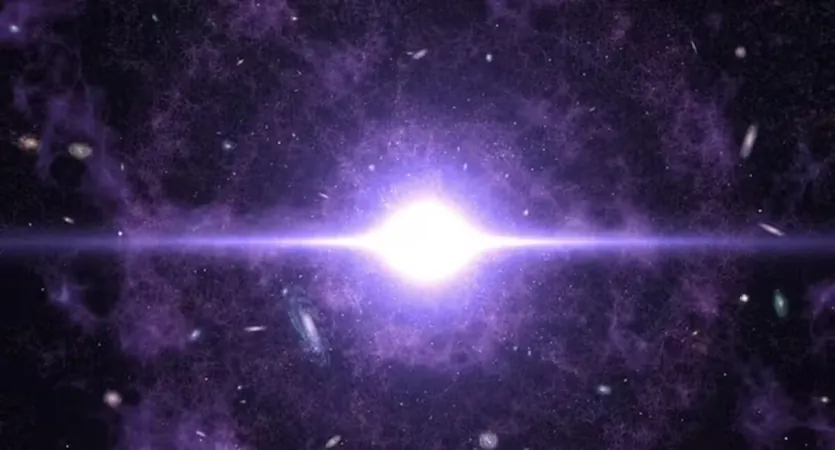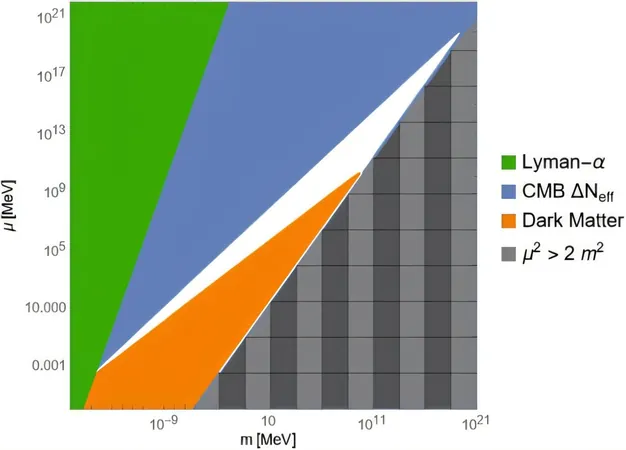
The Definitive Evidence: How Scientists Confirm the Universe Began with the Big Bang
2024-11-17
Author: Amelia
The prevailing theory among scientists about the origins of our universe is the Big Bang theory, which posits that the universe originated from an immensely hot and dense state approximately 13.8 billion years ago. This enormous explosion led to the rapid expansion of space, setting in motion the cosmos as we know it. So how do experts know for certain that this is how our universe began?
1. Cosmic Microwave Background Radiation (CMB)
One of the strongest pieces of evidence for the Big Bang theory is the detection of the Cosmic Microwave Background Radiation. This faint glow in the universe is a remnant of the heat from the Big Bang itself and is uniform across the cosmos. Discovered in 1965 by Arno Penzias and Robert Wilson, the CMB provides a snapshot of the early universe when it was just 380,000 years old, allowing scientists to study conditions following the Big Bang.
2. Redshift of Galaxies
Edwin Hubble's observations in the 1920s of distant galaxies revealed that they are moving away from us, demonstrating that the universe is expanding. This redshift phenomenon suggests that the universe was once confined to a single point and has been expanding ever since. The further away a galaxy is, the faster it is moving away, providing a critical piece of evidence supporting the Big Bang model.
3. Abundance of Light Elements
The Big Bang nucleosynthesis theory predicts that the universe's first few minutes produced light elements such as hydrogen, helium, and lithium in specific proportions. Observations confirm that the abundance of these elements in the universe aligns remarkably well with these predictions, reinforcing the Big Bang hypothesis.
4. Large Scale Structure
The distribution and structure of galaxies provide further support for the Big Bang theory. By studying the cosmic web of galaxies, scientists can trace back the evolution of the universe from its hot, dense beginnings to the vast, predominantly empty spaces we see today.
Despite occasional challenges to the Big Bang theory and alternative models arising, the cumulative evidence continues to strengthen our understanding of the universe's origins. Researchers across the globe, including those at NASA's Goddard Space Flight Center, are continuously refining these theories using advanced telescopes, satellite missions, and deep-space probes.
As we delve deeper into the mysteries of our universe, one thing remains clear: the Big Bang theory is not just a hypothesis but rather a well-supported framework upon which the history of our universe is constructed. Further explorations in cosmology promise to unveil even more secrets of the universe's birth and evolution.









 Brasil (PT)
Brasil (PT)
 Canada (EN)
Canada (EN)
 Chile (ES)
Chile (ES)
 España (ES)
España (ES)
 France (FR)
France (FR)
 Hong Kong (EN)
Hong Kong (EN)
 Italia (IT)
Italia (IT)
 日本 (JA)
日本 (JA)
 Magyarország (HU)
Magyarország (HU)
 Norge (NO)
Norge (NO)
 Polska (PL)
Polska (PL)
 Schweiz (DE)
Schweiz (DE)
 Singapore (EN)
Singapore (EN)
 Sverige (SV)
Sverige (SV)
 Suomi (FI)
Suomi (FI)
 Türkiye (TR)
Türkiye (TR)